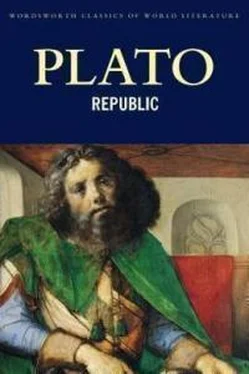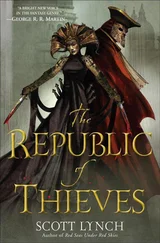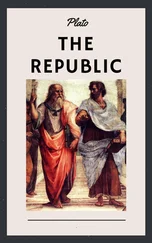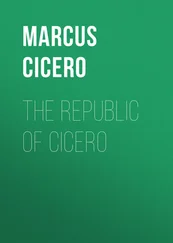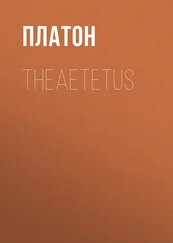Платон - The Republic
Здесь есть возможность читать онлайн «Платон - The Republic» весь текст электронной книги совершенно бесплатно (целиком полную версию без сокращений). В некоторых случаях можно слушать аудио, скачать через торрент в формате fb2 и присутствует краткое содержание. Год выпуска: 2014, Издательство: epubBooks Classics, Жанр: Философия, на английском языке. Описание произведения, (предисловие) а так же отзывы посетителей доступны на портале библиотеки ЛибКат.
- Название:The Republic
- Автор:
- Издательство:epubBooks Classics
- Жанр:
- Год:2014
- ISBN:нет данных
- Рейтинг книги:4 / 5. Голосов: 1
-
Избранное:Добавить в избранное
- Отзывы:
-
Ваша оценка:
- 80
- 1
- 2
- 3
- 4
- 5
The Republic: краткое содержание, описание и аннотация
Предлагаем к чтению аннотацию, описание, краткое содержание или предисловие (зависит от того, что написал сам автор книги «The Republic»). Если вы не нашли необходимую информацию о книге — напишите в комментариях, мы постараемся отыскать её.
The Republic — читать онлайн бесплатно полную книгу (весь текст) целиком
Ниже представлен текст книги, разбитый по страницам. Система сохранения места последней прочитанной страницы, позволяет с удобством читать онлайн бесплатно книгу «The Republic», без необходимости каждый раз заново искать на чём Вы остановились. Поставьте закладку, и сможете в любой момент перейти на страницу, на которой закончили чтение.
Интервал:
Закладка:
The Republic
Plato
Part I
Introduction and Analysis
The Republic of Plato is the longest of his works with the exception of the Laws, and is certainly the greatest of them. There are nearer approaches to modern metaphysics in the Philebus and in the Sophist; the Politicus or Statesman is more ideal; the form and institutions of the State are more clearly drawn out in the Laws; as works of art, the Symposium and the Protagoras are of higher excellence. But no other Dialogue of Plato has the same largeness of view and the same perfection of style; no other shows an equal knowledge of the world, or contains more of those thoughts which are new as well as old, and not of one age only but of all. Nowhere in Plato is there a deeper irony or a greater wealth of humour or imagery, or more dramatic power. Nor in any other of his writings is the attempt made to interweave life and speculation, or to connect politics with philosophy. The Republic is the centre around which the other Dialogues may be grouped; here philosophy reaches the highest point (cp, especially in Books V, VI, VII) to which ancient thinkers ever attained. Plato among the Greeks, like Bacon among the moderns, was the first who conceived a method of knowledge, although neither of them always distinguished the bare outline or form from the substance of truth; and both of them had to be content with an abstraction of science which was not yet realized. He was the greatest metaphysical genius whom the world has seen; and in him, more than in any other ancient thinker, the germs of future knowledge are contained. The sciences of logic and psychology, which have supplied so many instruments of thought to after–ages, are based upon the analyses of Socrates and Plato. The principles of definition, the law of contradiction, the fallacy of arguing in a circle, the distinction between the essence and accidents of a thing or notion, between means and ends, between causes and conditions; also the division of the mind into the rational, concupiscent, and irascible elements, or of pleasures and desires into necessary and unnecessary—these and other great forms of thought are all of them to be found in the Republic, and were probably first invented by Plato. The greatest of all logical truths, and the one of which writers on philosophy are most apt to lose sight, the difference between words and things, has been most strenuously insisted on by him (cp. Rep.; Polit.; Cratyl), although he has not always avoided the confusion of them in his own writings (e.g. Rep.). But he does not bind up truth in logical formulae,—logic is still veiled in metaphysics; and the science which he imagines to 'contemplate all truth and all existence' is very unlike the doctrine of the syllogism which Aristotle claims to have discovered (Soph. Elenchi).
Neither must we forget that the Republic is but the third part of a still larger design which was to have included an ideal history of Athens, as well as a political and physical philosophy. The fragment of the Critias has given birth to a world–famous fiction, second only in importance to the tale of Troy and the legend of Arthur; and is said as a fact to have inspired some of the early navigators of the sixteenth century. This mythical tale, of which the subject was a history of the wars of the Athenians against the Island of Atlantis, is supposed to be founded upon an unfinished poem of Solon, to which it would have stood in the same relation as the writings of the logographers to the poems of Homer. It would have told of a struggle for Liberty (cp. Tim.), intended to represent the conflict of Persia and Hellas. We may judge from the noble commencement of the Timaeus, from the fragment of the Critias itself, and from the third book of the Laws, in what manner Plato would have treated this high argument. We can only guess why the great design was abandoned; perhaps because Plato became sensible of some incongruity in a fictitious history, or because he had lost his interest in it, or because advancing years forbade the completion of it; and we may please ourselves with the fancy that had this imaginary narrative ever been finished, we should have found Plato himself sympathising with the struggle for Hellenic independence (cp. Laws), singing a hymn of triumph over Marathon and Salamis, perhaps making the reflection of Herodotus where he contemplates the growth of the Athenian empire—'How brave a thing is freedom of speech, which has made the Athenians so far exceed every other state of Hellas in greatness!' or, more probably, attributing the victory to the ancient good order of Athens and to the favor of Apollo and Athene (cp. Introd. to Critias).
Again, Plato may be regarded as the 'captain' ('arhchegoz') or leader of a goodly band of followers; for in the Republic is to be found the original of Cicero's De Republica, of St. Augustine's City of God, of the Utopia of Sir Thomas More, and of the numerous other imaginary States which are framed upon the same model. The extent to which Aristotle or the Aristotelian school were indebted to him in the Politics has been little recognised, and the recognition is the more necessary because it is not made by Aristotle himself. The two philosophers had more in common than they were conscious of; and probably some elements of Plato remain still undetected in Aristotle. In English philosophy too, many affinities may be traced, not only in the works of the Cambridge Platonists, but in great original writers like Berkeley or Coleridge, to Plato and his ideas. That there is a truth higher than experience, of which the mind bears witness to herself, is a conviction which in our own generation has been enthusiastically asserted, and is perhaps gaining ground. Of the Greek authors who at the Renaissance brought a new life into the world Plato has had the greatest influence. The Republic of Plato is also the first treatise upon education, of which the writings of Milton and Locke, Rousseau, Jean Paul, and Goethe are the legitimate descendants. Like Dante or Bunyan, he has a revelation of another life; like Bacon, he is profoundly impressed with the unity of knowledge; in the early Church he exercised a real influence on theology, and at the Revival of Literature on politics. Even the fragments of his words when 'repeated at second–hand' (Symp.) have in all ages ravished the hearts of men, who have seen reflected in them their own higher nature. He is the father of idealism in philosophy, in politics, in literature. And many of the latest conceptions of modern thinkers and statesmen, such as the unity of knowledge, the reign of law, and the equality of the sexes, have been anticipated in a dream by him.
The argument of the Republic is the search after Justice, the nature of which is first hinted at by Cephalus, the just and blameless old man—then discussed on the basis of proverbial morality by Socrates and Polemarchus—then caricatured by Thrasymachus and partially explained by Socrates—reduced to an abstraction by Glaucon and Adeimantus, and having become invisible in the individual reappears at length in the ideal State which is constructed by Socrates. The first care of the rulers is to be education, of which an outline is drawn after the old Hellenic model, providing only for an improved religion and morality, and more simplicity in music and gymnastic, a manlier strain of poetry, and greater harmony of the individual and the State. We are thus led on to the conception of a higher State, in which 'no man calls anything his own,' and in which there is neither 'marrying nor giving in marriage,' and 'kings are philosophers' and 'philosophers are kings;' and there is another and higher education, intellectual as well as moral and religious, of science as well as of art, and not of youth only but of the whole of life. Such a State is hardly to be realized in this world and quickly degenerates. To the perfect ideal succeeds the government of the soldier and the lover of honour, this again declining into democracy, and democracy into tyranny, in an imaginary but regular order having not much resemblance to the actual facts. When 'the wheel has come full circle' we do not begin again with a new period of human life; but we have passed from the best to the worst, and there we end. The subject is then changed and the old quarrel of poetry and philosophy which had been more lightly treated in the earlier books of the Republic is now resumed and fought out to a conclusion. Poetry is discovered to be an imitation thrice removed from the truth, and Homer, as well as the dramatic poets, having been condemned as an imitator, is sent into banishment along with them. And the idea of the State is supplemented by the revelation of a future life.
Читать дальшеИнтервал:
Закладка:
Похожие книги на «The Republic»
Представляем Вашему вниманию похожие книги на «The Republic» списком для выбора. Мы отобрали схожую по названию и смыслу литературу в надежде предоставить читателям больше вариантов отыскать новые, интересные, ещё непрочитанные произведения.
Обсуждение, отзывы о книге «The Republic» и просто собственные мнения читателей. Оставьте ваши комментарии, напишите, что Вы думаете о произведении, его смысле или главных героях. Укажите что конкретно понравилось, а что нет, и почему Вы так считаете.
